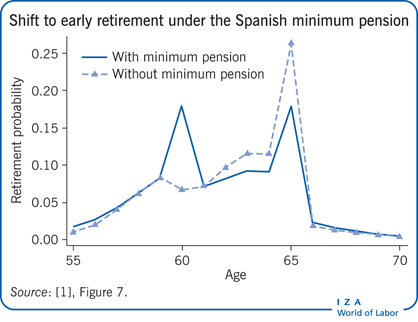Elevator pitch
The main purpose of minimum pension benefit programs and old-age social assistance programs is to guarantee a minimum standard of living after retirement and thus to alleviate poverty in old age. In many developing and developed countries, the minimum pension program is a key welfare program and a major influence on the retirement decisions of low-income workers and workers with erratic work histories. The design of many minimum pension programs tends to create strong incentives for low-income workers to retire as soon as they become eligible for the program, which is often earlier than the normal retirement age.
Key findings
Pros
Minimum pensions help low-income workers achieve a minimum standard of living in old age and thus reduce poverty.
Minimum pensions transfer income from people with high incomes to those with low incomes.
The incentive effect of minimum pension programs at the normal retirement age is in general moderate.
Cons
Minimum pensions fundamentally alter the work incentives of low-wage earners.
The influence of minimum pension programs on labor supply peaks at the early retirement age, thus reducing the labor supply of eligible workers.
Noncontributory social assistance benefits in old age also lower the work incentives of older workers.
Minimum pensions lead to peaks in early retirement as well as in normal-age retirements.
